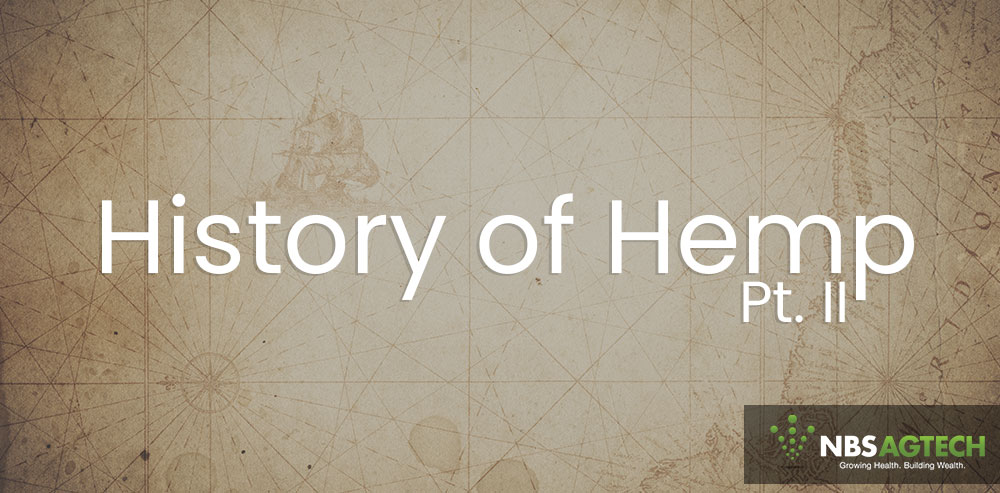
From one of our nation’s earliest cash crops to a classification as a controlled substance, industrial hemp has experienced both highs and lows throughout United States history. Let’s continue our look at the history of hemp and how this lucrative crop made its comeback in America and across the globe.
Controlled Substance Act of 1970
While many think the Marihuana Tax Act in the 1930s was a very damaging piece of legislation against industrial hemp – starting its fall as one of our nation’s largest cash crops, the Controlled Substance Act of 1970 is arguably the most damaging piece of legislation hemp faced. Signed into law by President Richard Nixon, the Controlled Substance Act of 1970 classified all cannabis varieties, including hemp, as Schedule I controlled substances. This classification put cannabis in the same category as other illicit drugs such as heroin, LSD, peyote, and ecstasy. Additionally, the Schedule I classification lumped cannabis plants in the group of the most tightly regulated substances in the United States, making possession of even a small amount of the plant illegal and punishable under federal law.
Growing Support
For years following the Controlled Substance Act of 1970 farmers had to steer clear of cannabis and its varieties, including hemp. Despite hemp’s ability to be a cheaper option for paper and textile products, the regulations on it kept it from becoming the dominant cash crop it once was. It wasn’t until the year 1998 that the United States began to import hemp seed and hemp derived products under heavy regulation and prohibited. However, the tides began to shift for hemp in the United States when the notable case of Hemp Industries Association vs. DEA went before the highly esteemed Ninth Circuit Court. The Ninth Circuit Court’s decision in this case permanently protected the sales of hemp foods and body care products across the United States – a huge victory for hemp and industrial hemp farming. It wasn’t until the year 2007 that the first hemp farming licenses in the United States were granted in over fifty years. Two North Dakota farmers received these licenses, reopening the doors to industrial hemp farming in the United States.
The Game Changer
In 2014 President Obama signed the Agricultural Act of 2014, also known as the Farm Bill, into law. A section of this act, Legitimacy of Industrial Hemp Research, defined industrial hemp as separate from marijuana and authorized educational institutions and state department’s of agriculture in states that had legalized hemp cultivation to grow industrial hemp and conduct research on the plant. This was a game changer for industrial hemp farmers, as once again hemp was gaining an identity separate from marijuana and doors were opening for this crop to once again become a sustainable and lucrative cash crop in America. Since the passing of this bill 41 states have passed legislation related to industrial hemp and 38 states considered updated legislation regarding hemp in 2018.
Where We Are Today
The year 2018 has been an exciting one for hemp and hemp farmers! Senate Majority leader Mitch McConnell introduced the Hemp Farming Act of 2018 which was the Senate’s version of the farm bill. This act included provisions to legalize hemp on a federal level and more importantly, to remove it from the federal list of controlled substances. Although these bills take time to pass it’s been reported that an agreement was reached between House and Senate negotiators working on this updated Farm Bill. Analysts following this bill report that they expect it to be finalized as early as this week, or at least by the end of the year. The passing of this bill would legalize hemp on a federal level, opening up endless possibilities for interstate commerce, trade, and hemp processing. Stay tuned to our blog for updates on this important piece of legislation for the hemp industry, we will be following it closely!
For more information on how to get your hemp farm started today email us at info@nbsagtech.com or give us a call at (702) 992 – 0552. We look forward to exploring the possibilities today of how we work together tomorrow.